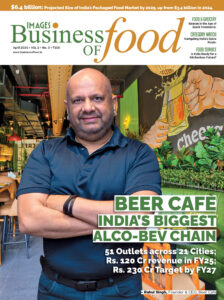A recent report by NIQ Shopper Trends 2024 reveals a notable shift in grocery shopping habits among urban Indians, with 31% now relying on quick commerce platforms for their primary grocery needs. The study highlights that 39% utilize these services for supplementary purchases. Conducted across 16 cities—including Delhi, Gurugram, Noida, Mumbai, Bengaluru, Chennai, and Hyderabad—the…




